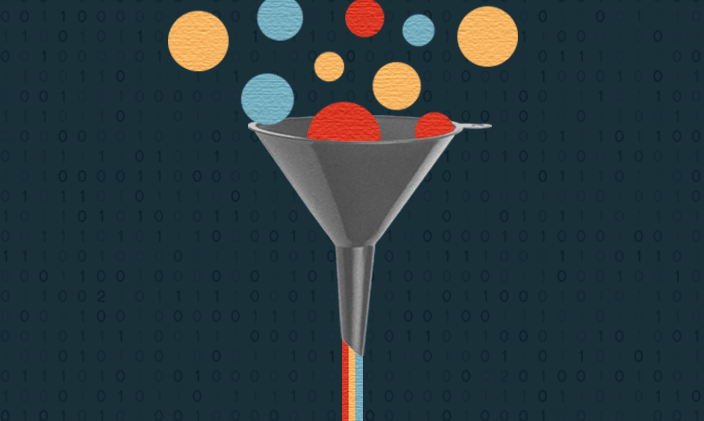Articles > Information Technology > What is a data scientist?
What is a data scientist?

Written by Michael Feder

Reviewed by Kathryn Uhles, MIS, MSP, Dean, College of Business and IT

So, what is big data? People and companies across the world will create an estimated 463 billion exabytes of data every day by 2025. For context, humans created three exabytes of data per day in 2012. These data points range from the number of calories you log on your food tracking app to the customer survey you fill out after a purchase.
Where data scientists come in
Someone has to do something with all that big data, and that is the job of data scientists. They are responsible for collecting, organizing and reporting on relevant data for organizations. Employers collect thousands of internal and external data points through a specific algorithm to drive their business decisions.
Data science is part of the information technology sector, but it’s significantly different from other areas of specialization, such as computer science. Some data scientists might play a bigger role in business operations and eventually step into leadership positions.
Data scientists are involved in every part of the analytics journey. They work with different departments to identify what information they want to collect, the best way to collect it and how to report the data clearly and accurately. Executives and department managers can then use this data to improve decision-making.
They are employed across almost all departments and all industries. Human resources teams use data to predict employee turnover and identify potential candidates for upskilling. Marketing teams often analyze different campaigns and tactics (down to A/B testing email subject lines) and use data to determine where to invest their budgets.
Some work with specific departments in large corporations while others work with different teams across smaller companies.
What is the difference between a data engineer and a data scientist?
A data engineer is a data professional who manages and organizes the data. Those with this job title may also build and maintain databases and data pipelines. Meanwhile, data scientists analyzes this big data and interprets it to pull out information such as insights or useful patterns from the dataset. This is called data science.
What does a data scientist do?
Data analysts and scientists perform a complex range of overlapping data science tasks. Data scientists typically handle more complex and advanced techniques for predictive modeling and work with unstructured data. Data analysts focus on structured data and use statistical analysis and visualization tools to solve tangible business problems. Here’s a list of routine data science tasks:
- Collecting and cleaning data: Collect data from various sources, including primary and secondary sources, and clean and organize the data to prepare it for analysis.
- Exploratory data analysis (EDA): Conduct EDA to understand the data set’s characteristics before building models. This involves creating visualizations such as histograms for continuous variables, scatter plots to check correlations, and bar charts for class imbalances.
- Designing predictive models: Develop predictive models and machine learning algorithms to mine large data sets. Use advanced statistical techniques and machine learning algorithms to predict future trends.
- Model evaluation and validation: Create evaluation metrics, such as confusion matrices and learning curves, to assess model performance during training. Validate model assumptions using techniques like residual plots and histogram analysis.
- Data visualization for communication: Communicate findings effectively to stakeholders who may need to gain in-depth knowledge of the subject domain. Use informative data visualizations, such as distribution plots, box plots and violin plots, to summarize and present results clearly.
- Business intelligence: Develop business intelligence tools, dashboards and reports that allow stakeholders to interact with and gain insights from the data sets. Interactive plots are often used to facilitate comparisons and highlight specific aspects of the data.
- Automation and programming: Write programs to automate data collection, processing and model deployment. Use programming languages like Python and R to perform data manipulation tasks.
- Time series analysis: Employ time and seasonal plots for time series analysis to identify trends and patterns.
Data science professionals who are seeking a higher salary may benefit from earning a data science bachelor’s or master’s degree or professional certifications in their specific field.
How to become a data scientist
According to the U.S. Bureau of Labor Statistics (BLS), most employers require data scientists to have at least a bachelor’s degree to be qualified for a position. The degree can be in computer science, data science, statistics, mathematics or a similar field. Some employers prefer that employees have a master’s degree.
These professionals often benefit from the knowledge they can attain with information technology degrees that help them set up programs to collect and analyze data. Students can specialize in data with a bachelor’s degree in data science to learn skills such as data analytics, data management, data visualization and business intelligence. Technical know-how helps collect data and develop programs that sort through thousands of data points and report them clearly.
However, many in data science also need business acumen. Knowledge of an industry gives insights as to why certain data points are important and how they can be used to make decisions. A business internship or job shadowing program can be helpful to grow this knowledge base.
Data scientists also have to contextualize the information they collect for the people who review it. They have to explain what it means and why it’s relevant. As a result, soft skills like logical thinking, clear communication and problem-solving are often in demand for these professionals. Developing these skills early in a career can make it easier to slide into this role.
When entering a specific industry, employers may also prefer or require industry-related experience or education as part of the qualifications. For example, those working in the business or marketing sector may need business administration or management experience. Likewise, those working in finance or accounting may need a background in those disciplines.
Additional certifications for data scientists
Some data science jobs require specific software expertise or certification that can help prepare employees to work with certain systems or within certain industries. Here are a few popular certifications that can boost that skill set:
- IBM Data Science Professional Certificate: Prepares students to use IBM products and tools related to data science. Focuses on data science methodology, SQL and Python.
- Microsoft Certified Data Science Path: There are multiple Microsoft data science certifications. They incorporate the role of machine learning in collecting and analyzing data.
- SAS Certified Data Scientist: A global certification program with a focus on SAS tools. Certification can focus on data curation, advanced analytics or artificial intelligence.
Employees can seek out these data science programs on their own or talk to their manager about completing them through the organization. Employers may see the benefits of investing in a certification so employees can apply new skills to their job, the company and enhance their data science career.
Learn skills to become a data scientist
If you’re interested in pursuing a career as a data scientist, University of Phoenix offers a Bachelor of Science in Data Science degree that teaches how to analyze, manipulate and process data. Students will learn career-ready skills like machine learning, programming, data mining, statistical analysis and more. These skills can help graduates prepare for a variety of employment opportunities in the data science industry.

ABOUT THE AUTHOR
A graduate of Johns Hopkins University and its Writing Seminars program and winner of the Stephen A. Dixon Literary Prize, Michael Feder brings an eye for detail and a passion for research to every article he writes. His academic and professional background includes experience in marketing, content development, script writing and SEO. Today, he works as a multimedia specialist at University of Phoenix where he covers a variety of topics ranging from healthcare to IT.

ABOUT THE REVIEWER
Currently Dean of the College of Business and Information Technology, Kathryn Uhles has served University of Phoenix in a variety of roles since 2006. Prior to joining University of Phoenix, Kathryn taught fifth grade to underprivileged youth in Phoenix.
This article has been vetted by University of Phoenix's editorial advisory committee.
Read more about our editorial process.


Get your free IT Program Guide
Learn how 100% of our IT degree and certificate programs align with career-relevant skills.
Thank you
Download your pdf guide now. Or access the link in our email.

